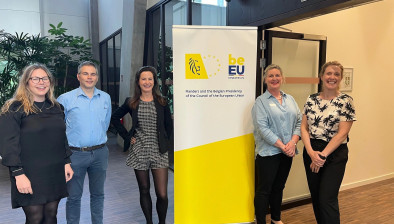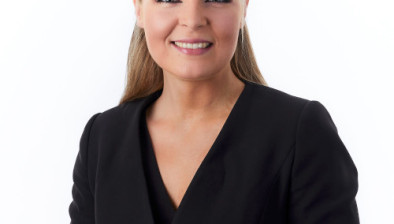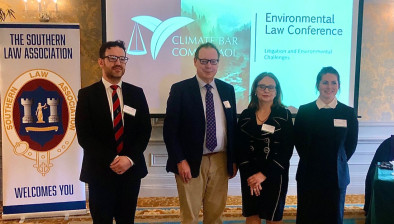Court of Appeal: Legal aid not available to companies in litigation designed to protect Irish environment

The Court of Appeal has determined that a company which engages in litigation to promote and protect the Irish environment was not entitled to legal aid from the State in order to pursue its cases. The court held that the Civil Legal Aid Act 1995 did not extend legal aid to corporate bodies.

About this case:
- Citation:[2023] IECA 19
- Judgment:
- Court:Court of Appeal
- Judge:Mr Justice Brian Murray
Delivering judgment in the case, Mr Justice Brian Murray held that the “tenor and substance” of the 1995 Act was to provide legal aid to individual persons rather than bodies corporate. The court also rejected that the Aarhus Convention applied in the case, stating that FIE failed to show that the litigation it engaged in was in fact prohibitively expensive.
Finally, the court held that Article 47 of the EU Charter of Fundamental Rights did not give FIE the entitlement to legal aid. However, the court said it was arguable that a complete prohibition on the provision of legal aid for bodies corporate for EU law issues might breach the Charter.
Background
The applicant, FIE, was a company limited by guarantee that had engaged in litigation promoting and protecting the Irish environment for over 20 years. In 2018, FIE applied to the Legal Aid Board for civil legal aid for proceedings which challenged the Government’s National Planning Framework and National Development Plan (the NDP case).
The Board refused to provide legal aid to FIE on the basis that FIE was a company and the 1995 Act limited the provision of civil legal aid to natural persons. FIE contended that there was no express limitation on the provision of legal aid for legal persons, noting that section 18(c) of the Interpretation Act 2005 included bodies corporate in the definition of “person”.
The case was litigated in the High Court, where the main issue was whether FIE fulfilled the definition of a “person” who was entitled to apply for legal aid. The trial judge determined that FIE was not entitled to legal aid. It was held that, when construing the 1995 Act as a whole, the definition of “person” did not extend to FIE. In particular, the court noted that terms such as “disposable income” and “undue hardship” were phrases ordinarily associated with individuals rather than legal entities.
Further, the trial judge held that EU law did not require that any doubt about the meaning of “person” should be interpreted in a way to advance the requirements of the EU Charter. Instead, it was held that there was “an entitlement to an effective remedy, and if the conditions of legal aid limit the right of access to the court such that the core of that entitlement is restricted, then those conditions might be incompatible with the right to legal aid”.
Finally, the trial judge rejected FIE’s contention that the provisions of the Aarhus Convention required the grant of legal aid to the applicant since the litigation would otherwise be prohibitively expensive. The court rejected this for a number of reasons, including inter alia that FIE had not been prevented from litigating the NDP case, having obtained solicitor and counsel in the matter.
FIE appealed the decision to the Court of Appeal.
Court of Appeal
Mr Justice Murray held that there were several key issues which arose out of the appeal. First, the court dealt with the proper test to determine whether a presumption that a provision applied to a legal person. The trial judge had considered whether “a contrary intention appears” in the 1995 Act to displace the presumption.
The court held that the “contrary intention” test was the correct approach to the question. However, the court framed the inquiry by reference to the “substance and tenor” of the Act as a whole and whether this was inconsistent with the word “person.” The language of the Act was central to the exercise, but there was no requirement that bodies corporate should be expressly disqualified, the court said.
It was sufficient “if a construction of the Act as a whole in context demonstrates a different intent” (Blue Metal Industries Ltd. and anor v. RW Dilley and anor. [1970] AC 827; Director of Corporate Enforcement v. Bailey [2011] IESC 24; Bookfinders Ltd. v. The Revenue Commissioners [2020] IESC 60; The People (DPP) v. AC [2021] IESC 74 considered).
In considering the context of the 1995 Act, the court noted that there were difficulties with including bodies corporate within the scheme of legal aid. For example, there were certain types of litigation which companies would primarily engage in (such as Companies Act matters) but there was no mention of these types of applications within the Act.
More generally, companies were in a different legal position in the litigation process to individuals. Incorporation was a privilege rather than a right, which carried benefits and burdens, the court said. As such, it was likely that a legislator would have imposed some restrictions on legal aid for financially-struggling companies.
When reading the provisions of the 1995 Act, it was clear that all conditions for eligibility to the legal aid scheme used language ordinarily associated with individuals rather than legal persons. Further, there was nothing in the Act which suggested that the Oireachtas had given any consideration to the factors affecting a corporate litigant.
Finally, section 28(9)(a) (viii) and (ix) of the Act prevented legal aid for actions designed to benefit a member of a group. However, if “person” included companies, then it would arguably not exclude actions taken by companies to benefit the members. It would make a nonsense of the section to accept that FIE was entitled to legal aid in the case, the court held.
Having regard to these factors, there was no doubt that the 1995 Act was only intended to apply to individual natural persons rather than legal persons.
Turning to consider Article 47 of the EU Charter and the Aarhus Convention, the court held that it was arguable that there was an entitlement to legal aid for bodies corporate in certain cases involving EU law (see Case C-279/09 DEB Deutsche Energiehandels-und-Beratungsgesellschaft mbH v. Bundesrepublik Deutschland ECLI:EU:C:2010:811).
However, it could be said that the Irish legal system did not interfere with the core right of access to court for bodies corporate, the court held. This was particularly so having regard to the wide exemption from adverse costs orders and the long tradition of lawyers engaging in “no foal, no fee” work. Further, the EU Charter was focused on individual rights and did not concern litigation involving public interest.
Similarly, the Aarhus Convention did not assist the applicant. The claim that there was an obligation on the State to provide direct financial assistance to FIE was not strong, especially where the requirement for “not prohibitively expensive” costs was “far from obvious” when placed in context. When given the opportunity, the CJEU did not outline a positive obligation to provide such aid (see Case C-260/11 Edwards and ors v. Environment Agency and ors ECLI:EU:C:2012:645).
There was also an evidential problem for FIE as it had never averred that it had difficulty to instruct lawyers in the NDP case, so it was very hard to see how the Aarhus provisions could apply to require legal aid.
The court also held that FIE was asking the court to amend the 1995 Act by inserting the definition of legal person into the provisions. This was contra legem and create a significant distortion of the legislative scheme, the court said.
Conclusion
The court dismissed the appeal on the grounds that FIE was a corporate body and was therefore precluded from the legal aid scheme.
Friends of the Irish Environment CLG v. The Legal Aid Board [2023] IECA 19












